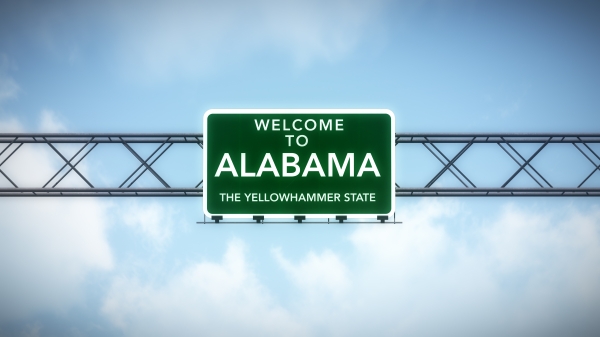Staff Report
From the Office of PARCA
BIRMINGHAM—PARCA is considered by many to be Alabama’s most trusted research organization.
The organization is a nonpartisan group with the goal of providing information, “that will lead to the improvement of state and local government in Alabama.”
PARCA recently released their analysis of the 11 proposed amendment to appear on This year’s General Election on November 6.
Within the following boxes, is the prescribed language for the proposed constitutional amendments that will appear on the ballot statewide. Beneath each ballot box, the PARCA staff has provided a brief descriptive analysis of the proposed amendment.
Statewide Amendment 1
“Proposing an amendment to the Constitution of Alabama of 1901, relating to the Forever Wild Land Trust, to reauthorize the trust for a 20-year period. (Proposed by Act 2011-315)”
Yes ( ) No ( )
Statewide Amendment 1 asks voters to authorize extending the state’s land preservation program, Forever Wild, for another 20 years.
Originally created in 1992 by Constitutional Amendment 553, Forever Wild receives 10 percent of the earnings of the state’s oil and gas trust fund, up to a cap of $15 million annually. It uses the proceeds to preserve land with ecological or recreational value.
According to the Alabama Department of Conservation and Natural Resources (DCNR), Forever Wild has received $193 million over its initial 20-year term. Over that time, the Forever Wild Trust has preserved 231,000 acres. That includes 61,000 acres leased for 99 years to preserve public hunting lands traditionally available in the conservation department’s Wildlife Management Areas. Land purchases have been used to expand existing state parks as well as to add to or establish nature preserves and recreational attractions.
The program operates independently in some cases but also works in conjunction with local governments on initiatives.
Forever Wild often matches its own money with grants from federal land and forest preservation programs as well with grants and donations from individuals and conservation-oriented nonprofits. The program can only acquire land from willing sellers.
The Forever Wild Trust is overseen by a 15-member appointed board of trustees and receives staff and land management support from the State Lands Division of the Alabama Department of Conservation and Natural Resources. The Commissioner of the DCNR is the ex-officio chair of the board.
According to a 2005 comparison performed by the Trust for Public Lands, Alabama ranks last among Southeastern states in publicly protected land, in terms of the percentage of land area preserved, total acreage protected, and acreage protected per capita. If Forever Wild were able to acquire the same total acreage over the next 20 years, Alabama would still rank last in the Southeast, even if other states acquire no more land during that period.
Statewide Amendment 2
“Proposing an amendment to the Constitution of Alabama of 1901, as amended, to allow issuance by the State from time to time of general obligation bonds under the authority of Section 219.04 and Section 219.041 to the Constitution of Alabama of 1901, as amended, so long as the aggregate principal amount of all such general obligation bonds at any time outstanding is not in excess of $750 million. This amendment would replace the maximum aggregate principal limitations currently contained in said Sections 219.04 and 219.041. The proposed amendment would also allow issuance by the State of general obligation refunding bonds under the authority of Sections 219.04 and 219.041 to the Constitution of Alabama of 1901, as amended, subject to certain minimum savings thresholds and limitations of maximum average maturity. (Proposed by Act 2012- 567)”
Yes ( ) No ( )
This proposal would amend the Alabama Constitution to restate the terms of the existing $750- million cap on general obligation bonds for economic development that can be issued under the authority of Constitutional Amendments 666 and 796.
The limit currently applies to the “aggregate principal amount” of bonds issued and not to the aggregate principal amount of bonds outstanding at any time. The proposal has two parts: (1) it permits the state to refinance existing debt, which should have been permitted by the original authorizing amendments, and more importantly (2) it permits the state to issue new debt as old debt is retired, not to exceed an aggregate principal amount of $750 million at any time. The effect of the proposal is both to correct an error in the original amendments and to expand the state’s ability to issue debt for economic development.
It is normal for bonds to be refinanced (or “refunded”) when interest rates fall, in order to reduce debt service payments, and refunding bonds normally do not count against the total of bonds issued under a cap because they simply replace bonds that are already counted in the total. The language in Amendments 666 and 796 did not explicitly allow for this adjustment in the calculations. Under the terms of this proposal, the refinancing of outstanding bonds authorized by Amendments 666 and 796 would not count against the $750-million limit. According to state finance officials, the state has issued about $720 million in bonds to date, with about $590 million outstanding. If enabled to refinance outstanding bonds where advantageous, the state could save about $30 million in interest costs currently, and the savings could increase in future years as additional existing bonds become eligible for refinancing.
The state would also be able to issue new bonds under the authority of the prior amendments as it pays down the principal from existing bonds, so long as the outstanding bond amounts do not exceed the $750-million limit. This converts the one-time authorization to an ongoing authorization limited only by the total of bonds outstanding at any time. It would create a permanent funding mechanism for economic development. The bonds would be issued as general obligations of the state, payable from the general revenues of the state. The primary source of repayment would be a trust fund that receives revenue from oil and gas production in the Gulf of Mexico, backed up by the General Fund. While both of these sources are down in recent years, state officials project that the savings from future refinancings would offset much of the additional debt service that would result.
Statewide Amendment 3
This proposal would amend the Alabama Constitution to define the boundaries of the Stockton community in northern Baldwin County, designate the area as a “Landmark District,” and prohibit the Legislature from passing a local act that annexes any property in the District into an existing municipality.
Annexation of property into municipalities is governed by the general laws of the state. One of the optional methods is for the Legislature to pass a local law that annexes an area into a specific municipality. This can be done without the consent of the property owners affected, which normally would be required. The proponents of this measure wish to prevent the use of such a procedure to annex property within the Stockton Landmark District to any existing municipality.
According to the Census Bureau, the Stockton community has a little over 5,000 residents. This is clearly a local issue. It was placed on the statewide ballot, rather than only on ballots in Baldwin County, because one legislator voted against the proposal. The Alabama Constitution requires unanimous legislative approval for proposed constitutional amendments to be considered local and decided solely by local voters. This proposal will be adopted only if it passes in Stockton, Baldwin County and statewide.
Statewide Amendment 4
“Relating to Baldwin County, proposing an amendment to the Constitution of Alabama of 1901, to define the Stockton Landmark District within the county and to prohibit the annexation by local law of any property within the district into any municipality. (Proposed by Act 2011-316)”
Yes ( ) No ( )
“Proposing an amendment to the Constitution of Alabama of 1901, to repeal portions of Amendment 111, now appearing as Section 256 of the Official Recompilation of the Constitution of Alabama of 1901, as amended, relating to separation of schools by race and to repeal Section 259, Amendment 90, and Amendment 109, relating to the poll tax. (Proposed by Act 2011-353)”
Yes ( ) No ( )
The proposed Statewide Amendment 4 would remove certain obsolete and discriminatory language currently found in Sections 256 and 259 of the Alabama Constitution, and related amendments.
The original Section 256 required a “liberal system of public schools”; however, it also required separate schools for white and black students. Amendment 111, adopted in 1956, contained three paragraphs amending Section 256. The first called for promoting education but removed any right to education at public expense. The second authorized the Legislature to provide for schools as it saw fit. The third allowed the Legislature to authorize parents or guardians to choose segregated schools for their children.
The proposal in Statewide Amendment 4 would eliminate the third paragraph of the Amendment 111 version of Section 256, which explicitly authorized segregated schools. The proposal also would repeal Section 259 and associated amendments, which once authorized poll taxes to be levied on the privilege of voting.
The provisions to be eliminated have been held by federal courts to violate the U. S. Constitution and are no longer in effect. Proponents of these changes claim that removing language related to school segregation and poll taxes is the right thing to do and will improve the state’s image. Some opponents of the proposal object to its failure to address the first two paragraphs of the Amendment 111 version of section 256, which eliminated the requirement to support public schools.
Statewide Amendment 5
This proposal would amend the Alabama Constitution to dissolve the Water Works and Sewer Board of the City of Prichard and transfer its assets and liabilities to the Board of Water and Sewer Commissioners of the City of Mobile. The terms of this amendment would require approval in the area served by each utility, as well as statewide. The rates of existing Mobile customers are not to increase as a result of the merger.
According to news accounts in the Press-Register, the Mobile system serves about 90,000 customers and is the largest water and sewer utility in the area. It provides water on a wholesale basis to the Prichard system, which then resells to its 11,300 retail customers. The Mobile system charges lower water rates and favors the merger as a way to add customers and provide more cost-effective services throughout the area. The Prichard system is opposed. A group of Prichard customers favors the merger due to the prospect of lower rates.
Statewide Amendment 6
This proposal would add to the Alabama Constitution language to prohibit any person, employer, or health care provider from being compelled to participate in any health care system. The apparent intent is to overturn in Alabama the requirement for individuals to purchase health insurance and other federal mandates adopted in the Affordable Care Act (ACA) that was passed by Congress in 2010.
According to the Congressional Research Service (CRS), twenty states have adopted laws that oppose some of the provisions in the ACA. At least three states have adopted constitutional amendments like the current Alabama proposal, and similar amendments are on the November ballot in two other states. Seven states have passed legislation to join an interstate health care compact that, if approved by Congress, would give responsibility and authority for health care matters to the member states rather than the federal government.
In June 2012, the U.S. Supreme Court upheld the ACA’s requirement for individuals to purchase health insurance. The CRS has written that direct conflicts between federal and state laws “are likely to be
“Proposing an amendment to the Constitution of Alabama of 1901, to provide for the transfer of the assets and liabilities of the Water Works and Sewer Board of the City of Prichard to the Board of Water and Sewer Commissioners of the City of Mobile, presently known as the Mobile Area Water and Sewer System. (Proposed by Act 2011-543)”
Yes ( ) No ( )
“Proposing an amendment to the Constitution of Alabama of 1901, to prohibit any person, employer, or health care provider from being compelled to participate in any health care system. (Proposed by Act 2011-617)”
Yes ( ) No ( )
Statewide Amendment 6
This proposal would add to the Alabama Constitution language to prohibit any person, employer, or health care provider from being compelled to participate in any health care system. The apparent intent is to overturn in Alabama the requirement for individuals to purchase health insurance and other federal mandates adopted in the Affordable Care Act (ACA) that was passed by Congress in 2010.
According to the Congressional Research Service (CRS), twenty states have adopted laws that oppose some of the provisions in the ACA. At least three states have adopted constitutional amendments like the current Alabama proposal, and similar amendments are on the November ballot in two other states. Seven states have passed legislation to join an interstate health care compact that, if approved by Congress, would give responsibility and authority for health care matters to the member states rather than the federal government.
In June 2012, the U.S. Supreme Court upheld the ACA’s requirement for individuals to purchase health insurance. The CRS has written that direct conflicts between federal and state laws “are likely to be
States Constitution.” That clause (Article VI, second paragraph) reads: “This Constitution, and the laws of the United States which shall be made in pursuance thereof… shall be the supreme Law of the land …, anything in the constitution or Laws of any state to the contrary notwithstanding.”
The complete CRS report can be found here.
Statewide Amendment 7
“Proposing an amendment to the Constitution of Alabama of 1901, to amend Amendment 579 to the Constitution of Alabama of 1901, now appearing as Section 177 of the Official Recompilation of the Constitution of Alabama of 1901, as amended, to provide that the right of individuals to vote for public office, public votes on referenda, or votes of employee representation by secret ballot is fundamental. (Proposed by Act 2011-656)”
Yes ( ) No ( )
This proposal would add a new paragraph to Section 177 of the Alabama Constitution, which governs elections and voting. The new paragraph would guarantee individuals the right to vote by secret ballot whenever state or federal law requires voting to elect public officials, approve ballot issues, or designate employee representation by unions in the workplace.
Basically the proposal has two parts. Section 177 currently states that “The Legislature shall by law provide for … secrecy in voting.” This proposal adds a guarantee that the law must provide for electing public officials or approving referendums by secret ballot.
The remaining language of the proposal is very similar to a constitutional amendment approved in 2010 by Arizona voters. The purpose of the Arizona amendment, and this Alabama proposal, is to preserve the requirement for secret ballots in the authorization and designation of employee representatives in the workplace.
Under federal law, the designation of unions to represent employees occurs under the requirements of the National Labor Relations Act (NLRA). Employees sign cards indicating that they want to have a union represent them, and if the results are contested, a secret ballot is held. Contests can come from either employees or the employer.
After the national elections in 2008, an amendment to the NLRA was proposed that would have eliminated the requirement for a secret ballot if a majority of the employees had signed such cards. The bill, known as the Employee Free Choice Act, did not pass. The Arizona amendment was proposed to maintain the certainty of a secret-ballot requirement for designating a union.
The Arizona amendment was challenged by the National Labor Relations Board (NLRB), which argued that it is pre-empted by federal law. The U.S. District Court for Arizona held that it is premature to judge how the State of Arizona will implement the brief language in the amendment and whether it will do so in a way that conflicts with the NLRA.
The complete Order of the U.S. District Court can be found here.
Statewide Amendment 8
“Proposing an amendment to the Constitution of Alabama of 1901, to repeal the existing provisions for legislative compensation and expenses and establish the basic compensation of the Legislature at the median household income in Alabama; to require legislators to submit signed vouchers for reimbursement for expenses; and to prohibit the Legislature from increasing the compensation or expenses payable to its members. (Proposed by Act 2012-269)”
Yes ( ) No ( )
This proposal would repeal from Alabama law existing provisions for legislative compensation and expenses. It would replace these with a standard for legislative compensation based on the median annual household income in Alabama, and a standard for legislative expense reimbursement based on allowances for state employees generally. The proposal would apply to the Lt. Governor, who serves as President of the Senate, as well as members of the Legislature.
According to the fiscal note accompanying the proposal, members of the Legislature currently receive a salary of $10 per day for 105 days during the legislative session, a $50 per diem expense allowance for 45 days, a monthly expense allowance of $4,174 per month, and $0.10 per mile for one roundtrip to and from Montgomery. The Speaker and Lt. Governor receive salaries of $12 per day for 105 days per session and an additional $1,500 for monthly expenses. The expense allowances require no vouchers.
If adopted, the proposed amendment would provide legislators with a salary equivalent to the median annual household income in Alabama, as determined annually by the State Personnel Board. The U.S. Census Bureau produces median annual household income data for each state that could be used in making this determination. The Alabama estimate for 2010 was $40,474. The fiscal note accompanying the proposal calculates that this would reduce average legislative compensation by approximately $7,208.
The procedures for legislative expenses would also be changed. Expenses would be paid in the same amounts and manner as allowed under law for state employees generally, including a requirement that legislators submit signed vouchers for their expense reimbursements. The presiding officer of each House of the Legislature would be responsible for approving expenses based on a determination that they are in the service of the state.
The proposed amendment would prohibit the Legislature from increasing or supplementing these provisions for compensation and expense reimbursement. Its terms would take effect for officials elected in the 2014 General Election.
Statewide Amendment 9
“Proposing an amendment to the private corporation provisions of Article 12 of the Constitution of Alabama of 1901, to become effective January 1, 2014, to continue the authority of the Legislature to pass general laws pertaining to corporations and other entities; to continue the authority of the legislature to regulate and impose a business privilege tax on corporations and other entities; and to repeal various provisions concerning private corporations, railroads, and canals. (Proposed by Act 2012-275)”
Yes ( ) No ( )
In 2011, the Legislature created a Constitutional Revision Commission to review selected Articles of the Constitution of Alabama of 1901 according to a set schedule and make recommendations for revision where considered necessary. The Commission is chaired by former Governor Albert Brewer. In February 2012 it presented recommendations to the Legislature including a revision of those Sections in Article XII that pertain to Private Corporations.
The proposed Statewide Amendment 9 contains the Commission’s recommendations related to Article XII. The existing Article XII includes eighteen Sections on Private Corporations. The revised version would eliminate ten Sections that have become obsolete, such as antitrust provisions that predate federal antitrust laws, and details now covered in Alabama statutes that largely follow the Model Business Corporation Act.
Four Sections would remain unchanged; these Sections preserve the Constitution’s existing language related to eminent domain, the definition of a corporation, the state’s power to revoke corporate charters, and railroads.
The remaining four Sections would be amended or consolidated. They would: Continue the Legislature’s authority to pass general laws pertaining to business entities, and
recognize the authority to legislate concerning non-corporate business entities. Continue the Legislature’s authority to levy a business privilege tax. Preserve existing language giving corporations the right to sue, and subjecting them to being
sued, in court. Preserve the basic principle of limited shareholder liability.
The full text of this proposed amendment, together with commentary on all changes, can be found on the Constitutional Revision Commission’s website, which is hosted by the Alabama Law Institute.
Statewide Amendment 10
“Proposing an amendment to the Constitution of Alabama of 1901, effective January 1, 2014, to amend Section 247 relating to the authority of the Legislature concerning banks and banking, to repeal various other provisions of Article XIII concerning banks and banking; and to repeal Amendment 154 to the Constitution of Alabama of 1901, now appearing as Section 255.01 of the Official Recompilation of the Constitution of Alabama of 1901, as amended, subject to the contingency that a new Article XII of the state constitution is adopted that repeals existing Section 232 of the state constitution, and subject to the contingency that Sections 10A-2-15.01 and 10A-2- 15.02, Code of Alabama 1975, are repealed. (Proposed by Act 2012-276)”
Yes ( ) No ( )
The proposed Statewide Amendment 10 contains the recommendations of the Constitutional Revision Commission related to Article XIII. This Article currently consists of nine Sections. In the revision, four of these Sections would be repealed due to subject matter that is covered by statutory law or no longer necessary.
Of the remaining five Sections, one specifies the types of banks covered by the Banking Article; it is unchanged in the proposal. The other four contain grants of power to the Legislature over banks and banking, and limitations on that power. These Sections are consolidated but remain unchanged except for the elimination of obsolete language.
The revised Banking Article includes the following provisions:
Banks are to be established under a general banking law.
Bank charters are to have unlimited duration.
The state and its local governments are not to be bank stockholders, or to lend credit to banks.
The Legislature must provide for the regular examination of banks by a public officer. The full text of the proposed amendment, together with commentary on the changes from existing provisions of the Constitution, can be found on the Constitutional Revision Commission’s website, which is hosted by the Alabama Law Institute.
Statewide Amendment 11
“Relating to Lawrence County, proposing an amendment to the Constitution of Alabama of 1901, to prohibit any municipality located entirely outside of Lawrence County from imposing any municipal ordinance or regulation, including, but not limited to, any tax, zoning, planning, or sanitation regulations, and any inspection service in its police jurisdiction located in Lawrence County and to provide that a municipality prohibited from imposing any tax or regulation under this amendment shall not provide any regulatory function or police or fire protection services in its police jurisdiction located in Lawrence County, other than public safety mutual aid. (Proposed by Act 2012-308)”
Yes ( ) No ( )
Act 2012-308 proposes an amendment to the Alabama Constitution that would prohibit any municipality located entirely outside Lawrence County from imposing any of its municipal ordinances or regulations within that part of its police jurisdiction that is located in Lawrence County. It further prohibits such a municipality from providing any regulatory function or police or fire protection services in its police jurisdiction located in Lawrence County, other than public safety mutual aid.
Alabama law provides for a defined area, known as a “police jurisdiction,” that surrounds the corporate limits of a municipality, enabling the municipality to provide public safety, enforce criminal ordinances, regulate construction and development through municipal building codes, license businesses, and levy certain types of taxes in order to pay for the services that are provided.
For example, the City of Decatur in Morgan County has police jurisdiction reaching into Lawrence County. According to Decatur officials, the City has not enforced its police jurisdiction within Lawrence County, but this bill would prohibit Decatur, or any other city outside that county, from doing so in the future.
Originally, this proposed amendment was to be considered a local amendment for Lawrence and Morgan Counties. After further consideration and reading, the Attorney General’s Office reached the conclusion that the proposal should be considered a statewide amendment. This was approved by the Local Constitutional Amendment Commission, and the Secretary of State recertified it as Statewide Amendment 11. As a statewide amendment of local application, it will be adopted only if it passes in Lawrence County, all seven of the surrounding counties, and statewide, according to the Secretary of State’s Office.
For more information see www.parca.samford.edu
PARCA’s mission is to provide objective, nonpartisan information that will lead to the improvement of state and local government in Alabama.


















































